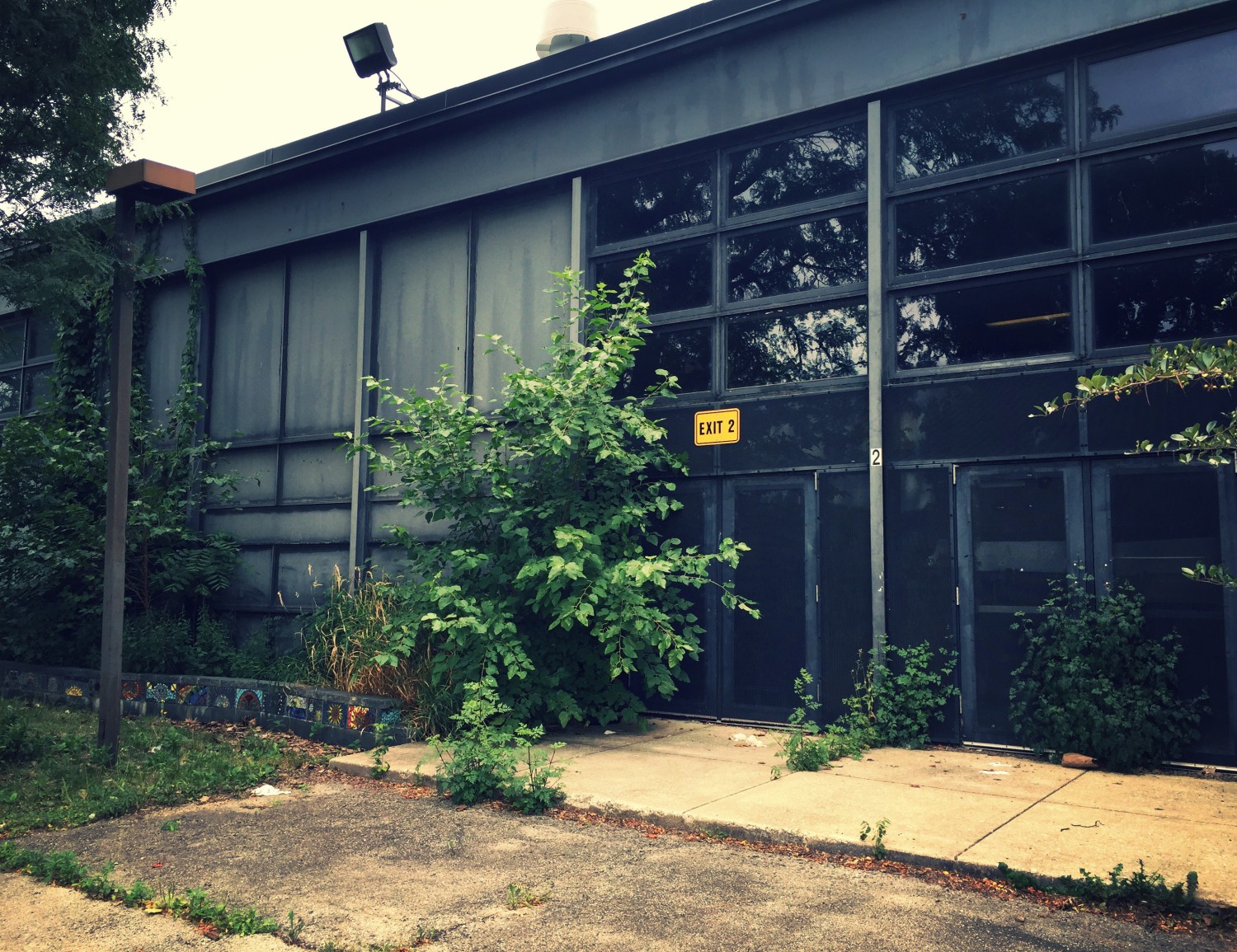Phantoms Playing Double-Dutch: Why the Fight for Dyett is Bigger than One Chicago School Closing

Cause everybody dies in the summer / Wanna say your goodbyes, tell ‘em while it’s spring / I heard everybody’s dying in the summer So pray to God for a little more spring.”– Chance the Rapper tweet
The first thing that struck me when I walked up King Drive to 35th Street, where the throng of people sat in front of the fourth ward alderman’s office, was the heat. Don’t get me wrong—I’ve been a Chicagoan since the day I was born, which means I was born for bad weather. I lived through the heat wave of 1995, when over 700 people died, and through the blizzard in 2011, when the cars sat stacked on Lake Shore Drive, still, like terracotta warriors. So it wasn’t the factof the weather that got me; it was the old folks there in it. And the babies. And then, when my eyes lingered a bit longer, it was the mothers, and the teenagers, and—well, everybody. They sat in folding chairs under the scant, moving shade of skinny trees, or leaned against the wrought iron fence, or sat on the steps of the alderman’s office. They were gathered in the name of Dyett, the high school that the leaders of Chicago Public Schools (CPS) announced in 2012 would be shuttered at the end of 2015. This group of parents, community members, and students—many of them affiliated with the Kenwood-Oakland Community Organization (KOCO), one of the oldest black organizing groups in the country—sat in the 95-degree heat to demand a meeting with the alderman, Will Burns. They wanted him to consider their proposal to re-open Dyett as an open-enrollment, community-based school.
I shared some bottles of water and sat for a while. It was hot. We moved the chairs periodically as the sun shifted across the sky. A city worker drove by in a pickup truck, hauling a trailer laden with park maintenance equipment. He raised his fist out the window and gave a cheer, and the folks gathered cheered back. I listened to Mrs. McCall1 talk about how her grandfather owned a store in Mississippi, how she moved north when she was 12 years old and spent her summers traveling back to visit him. She told me how to make the best of my time in graduate school. “What is your passion?” she asked me. “What do you love the most?” My gaze traveled across the street, to the King Branch library where I had once hosted afterschool research sessions so that my students could have help finding reference books, where many of them stayed in the afternoons because it was a safe, free place to do homework until their parents got off work, where if I stopped to just borrow or return a novel they would grin broadly, excited to see me outside of school. I pretended I had x-ray vision, and squinted my eyes to look through the library, to peer west one block and north three blocks, to where that school was, the school where I taught. What do you love the most?
That day, that hot day, that was a year ago. Last week, I saw some of those same old folks, those same babies, in front of Dyett, at the northern end of the South Side’s sprawling Washington Park. And unlike all the other times I had seen them, they were not demanding a meeting. They were through with meetings. Today, twelve of them were beginning a hunger strike. I knelt in the grass next to Irene Robinson, a grandmother of nine children, who I saw get escorted away by police in City Hall a few weeks ago when she showed up to protest the closing of Dyett; every time I see her, she strikes me with the same two memorable traits—she wears fantastic purple or fuschia lipstick and, when we part, bids farewell by saying “I love you!” so enthusiastically that I am moved to say it back.
“Are you scared, Ms. Irene?”
“I’m scared,” she tells me, looking past me to the behemoth black building that stands empty behind my shoulders. “I’m scared for my grandchildren.”
Tonight, as I write this, it is Sunday, day seven of the hunger strike. This morning, I attended a special service at Mt. Carmel Baptist Church, where the pastor has joined the strike in a show of support. Ms. Robinson and the other hunger strikers sat in the front pews, across the aisle from where I sat with my niece, Leila, who at two (almost three) is nevertheless remarkably good at sitting quietly in church. She watched, wide-eyed, as KOCO’s lead education organizer, Jitu Brown, stood at the pulpit. I split my time between watching him and watching her, thinking about the nights I have spent scouring the internet for an affordable, high-quality place for her to go to preschool (spoiler alert: there aren’t any). I think about the map I saw recently in a report from the University of Chicago’s Chapin Hall Center for Children, charting the availability of state-licensed childcare in Chicago, community by community. Our neighborhood was noted as having .07 – .21 slots for every child aged 0-5, meaning that quality childcare would be out of reach for 79-93% of young children in the area. I think about how I wish Leila could at least get to three before the Phantoms Playing Double-Dutch: Why the Fight for Dyett is Bigger than One Chicago School Closing | Seven Scribes:
